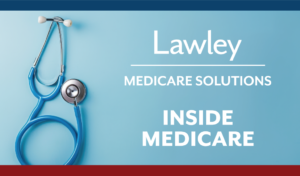Individual Health Insurance Mandate
Individual Health Insurance Mandate
May 22, 2013
Beginning in 2014, the Affordable Care Act (ACA) requires most individuals to obtain acceptable health insurance coverage for themselves and their family members or pay a penalty. Because this provision has the effect of “requiring” individuals to have coverage, it is often referred to as the “individual mandate.” Individuals may be eligible for an exemption from the penalty in certain circumstances.
HOW MUCH IS THE PENALTY?
The penalty for not obtaining acceptable health insurance coverage will be phased in over a three-year period, and is the greater of two amounts—the “flat dollar amount” and “percentage of income amount.”
The penalty will start at $95 per person or up to 1 percent of income for 2014. Income for this purpose is the taxpayer’s household income minus the taxpayer’s exemption (or exemptions for a married couple) and standard deductions. The penalty amount increases to $325 or up to 2 percent of income in 2015. In 2016 and thereafter, the penalty increases to $695 or up to 2.5 percent of income.
The penalty is capped at the national average of the annual bronze plan premium. Families will pay half the penalty amount for children, up to a family cap of three times the annual flat dollar amount per year.
WHO IS LIABLE FOR A PENALTY?
The penalty will be assessed against an individual for any month during which he or she does not maintain “minimum essential coverage,” beginning in 2014 (unless an exemption applies). The requirement to maintain minimum essential coverage applies to individuals of all ages, including children. The Treasury proposed regulations provide that an individual is treated as having coverage for a month so long as he or she has coverage for any one day of that month.
Minimum essential coverage includes coverage under:
- A government-sponsored program, such as coverage under the Medicare or Medicaid programs, CHIP, TRICARE and certain types of Veterans health coverage;
- An eligible employer-sponsored plan (including COBRA and retiree coverage);
- A health plan purchased in the individual market; or
- A grandfathered health plan.
Minimum essential coverage does not include specialized coverage, such as coverage only for vision care or dental care, workers’ compensation, disability policies, or coverage only for a specific disease or condition. Under the ACA, minimum essential coverage also includes any additional types of coverage that are designated by HHS or when the sponsor of the coverage follows a process outlined in regulations to be recognized as minimum essential coverage.
-Exceptions to the Individual Mandate
The ACA provides the following nine categories of individuals who are exempt from the penalty for not maintaining minimum essential coverage:
- Individuals who cannot afford coverage (those for whom a required contribution for coverage would cost more than 8 percent of their household income);
- Taxpayers with income below the filing threshold;
- Members of certain Indian tribes;
- Individuals who are given a hardship exemption by HHS;
- Individuals who experience a gap in coverage for less than a continuous three-month period (may only be used for one period without coverage per year);
- Religious conscience objectors;
- Members of a health care sharing ministry;
- Incarcerated individuals; and
- Individuals who are not citizens, nationals or lawfully present in the United States.
The Treasury proposed regulations provide that an individual who is eligible for an exemption for any one day of a month is treated as exempt for the entire month.
The HHS proposed regulations enumerate several situations that will always be treated as constituting a hardship for purposes of the hardship exemption, including:
- Individuals who turn down coverage because the Exchange projects it will be unaffordable (even if his or her actual income for the year turns out to be higher so that they are not eligible for the affordability exemption);
- Certain individuals who are not required to file an income tax return but who technically fall outside the statutory exemption for those with household income below the filing threshold; and
- Individuals who would be eligible for Medicaid under the expansion, but live in a state that chooses not to expand Medicaid eligibility.
The HHS proposed regulations also provide that the hardship exemption will be available on a case-by-case basis for individuals who face other unexpected personal or financial circumstances that prevent them from obtaining coverage.
HOW IS THE PENALTY ENFORCED?
Starting in 2015, individuals filing a tax return for the previous tax year will indicate which members of their family (including themselves) are exempt from the individual mandate. For family members who are not exempt, the taxpayer will indicate whether they had insurance coverage. For each non-exempt family member who doesn’t have coverage, the taxpayer will owe a payment. Spouses who file a joint return are jointly liable for the penalties that apply to either or both of them. Any individual who is eligible to claim a dependent will be responsible for reporting and paying the penalty applicable to that dependent.
The Internal Revenue Service (IRS) will generally assess and collect penalties in the same manner as taxes. However, the ACA imposes certain limitations on the IRS’ ability to collect the penalty. As a result, it is widely believed that any assessable penalty will be subtracted from the tax refund that the individual is owed, if any.
DOWNLOAD A PDF OF THIS DOCUMENT:
Individual Health Insurance Mandate






